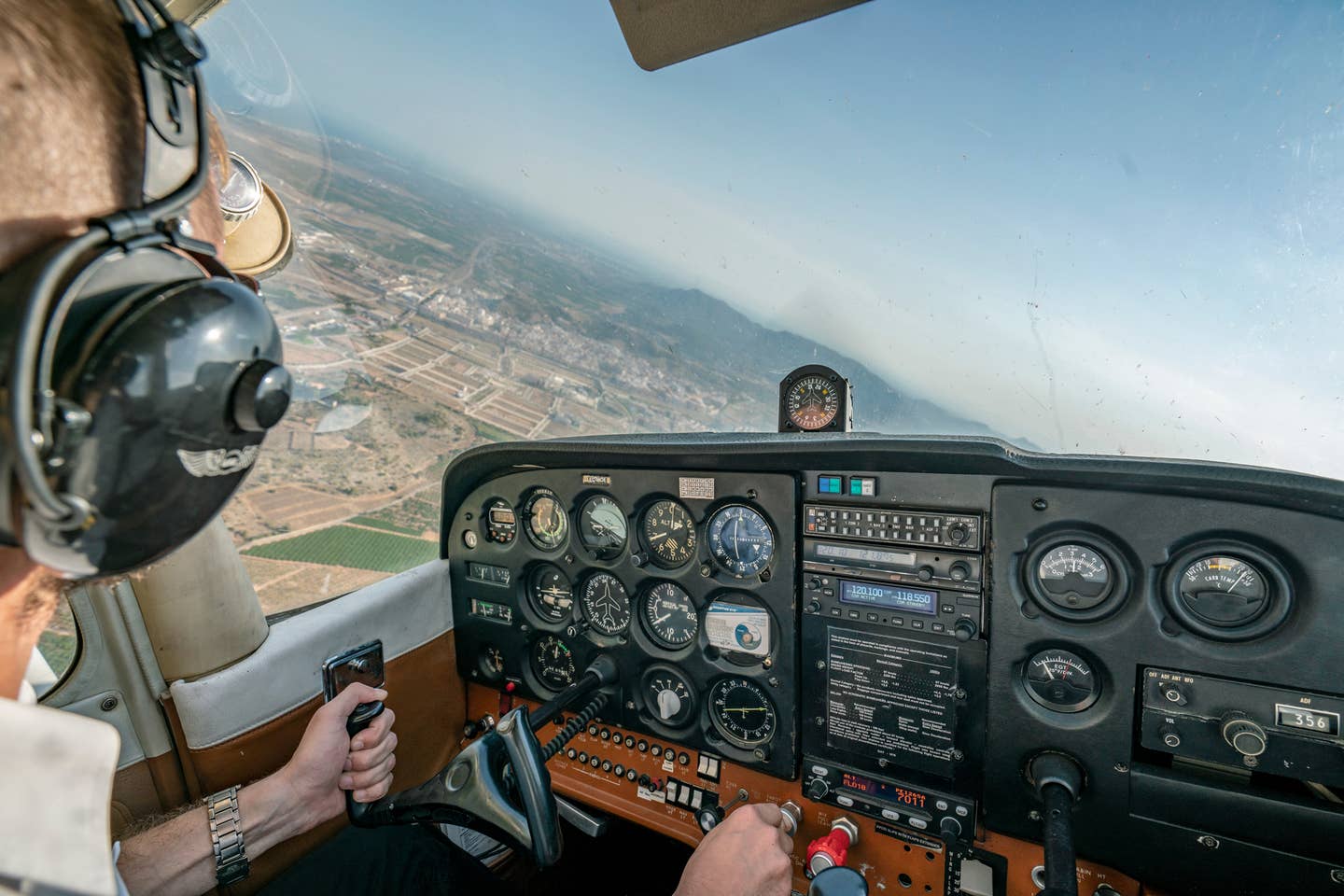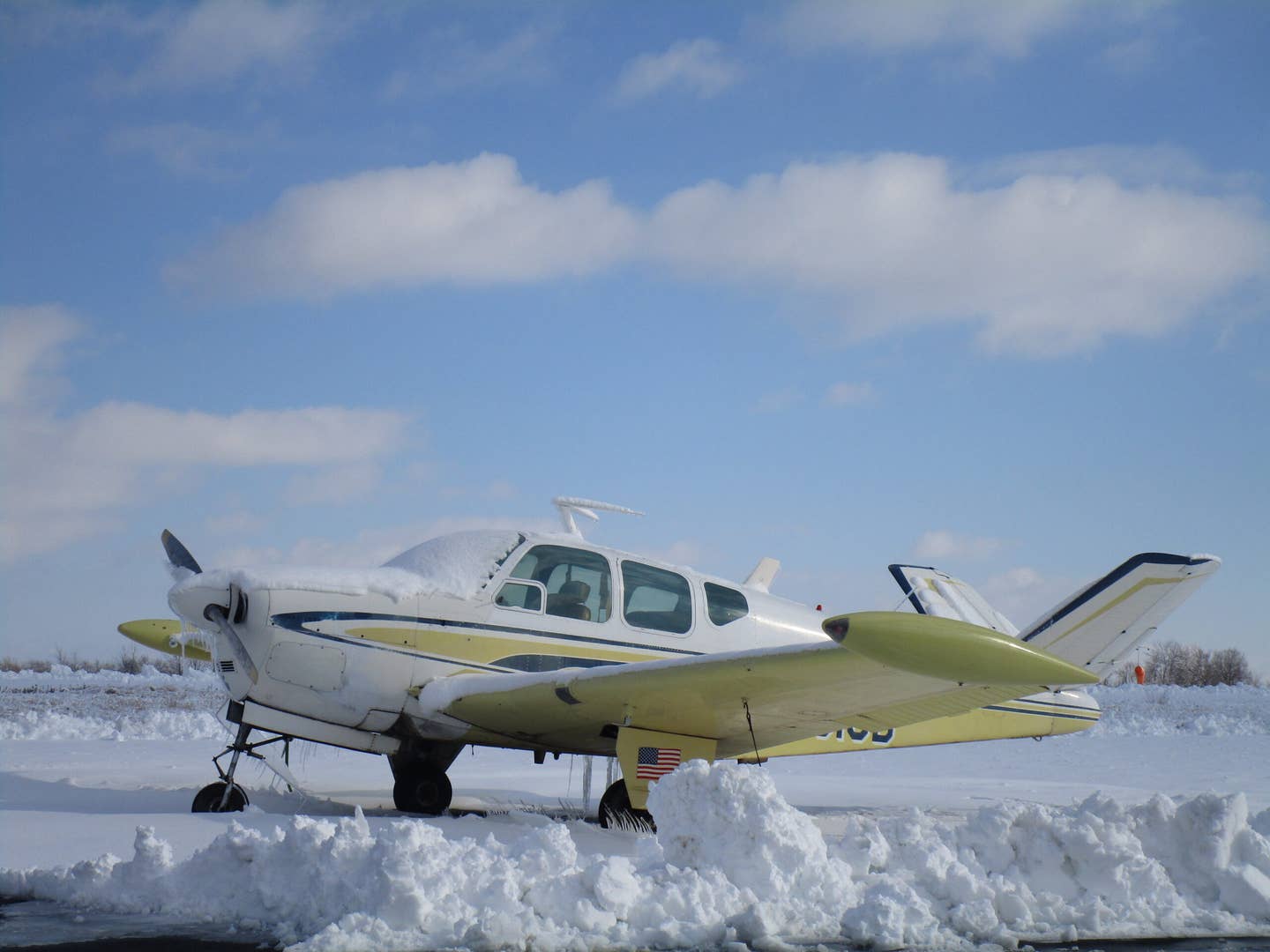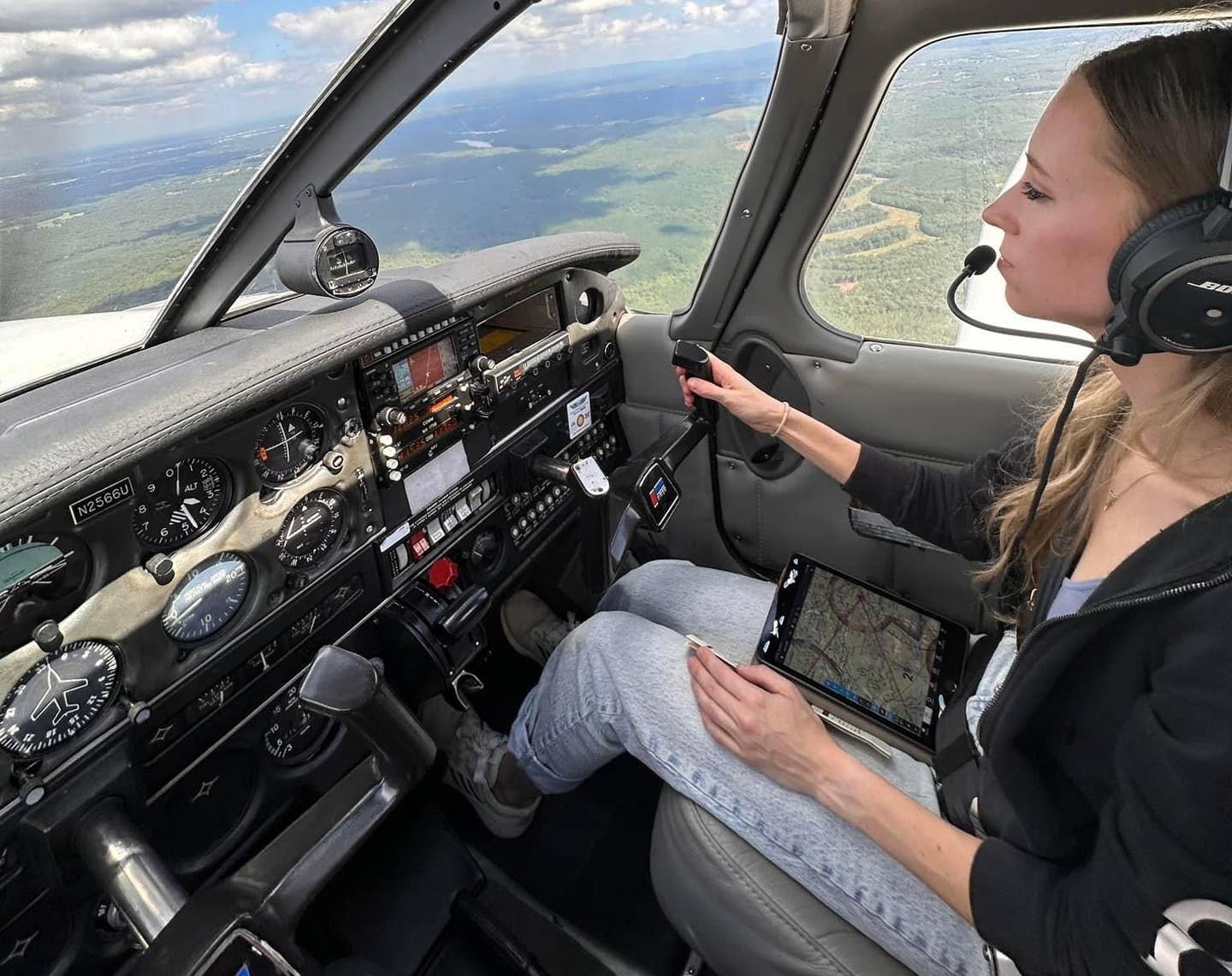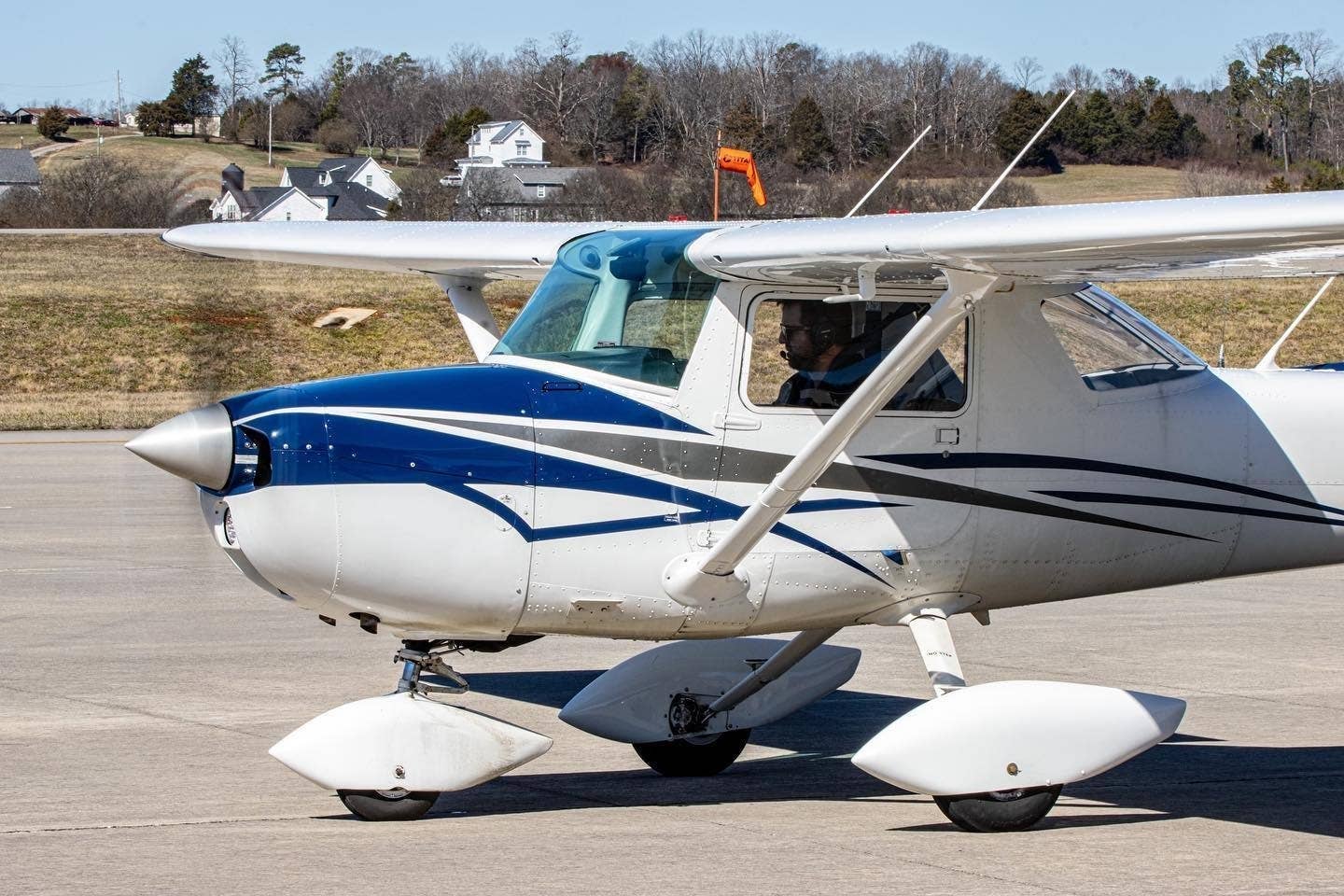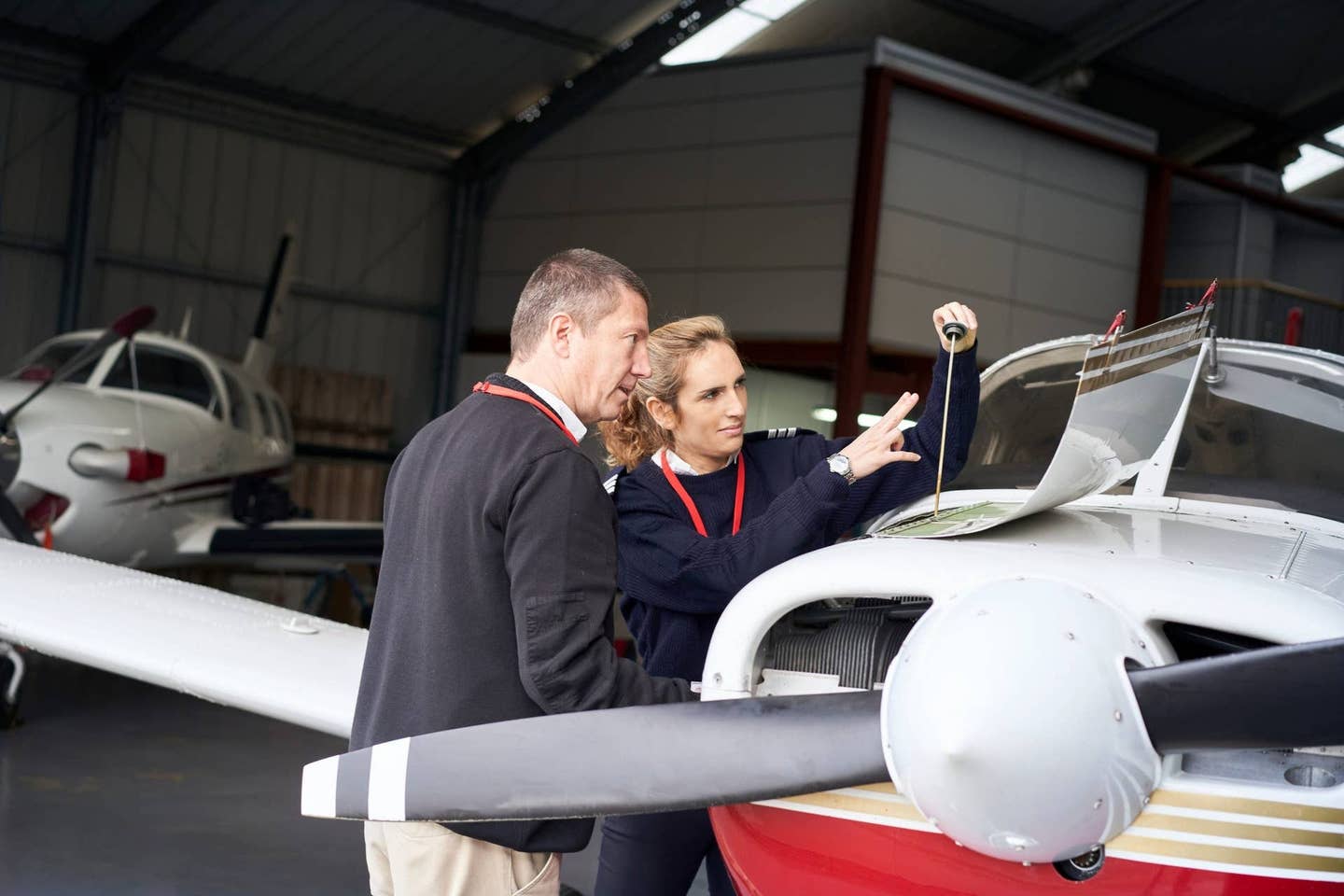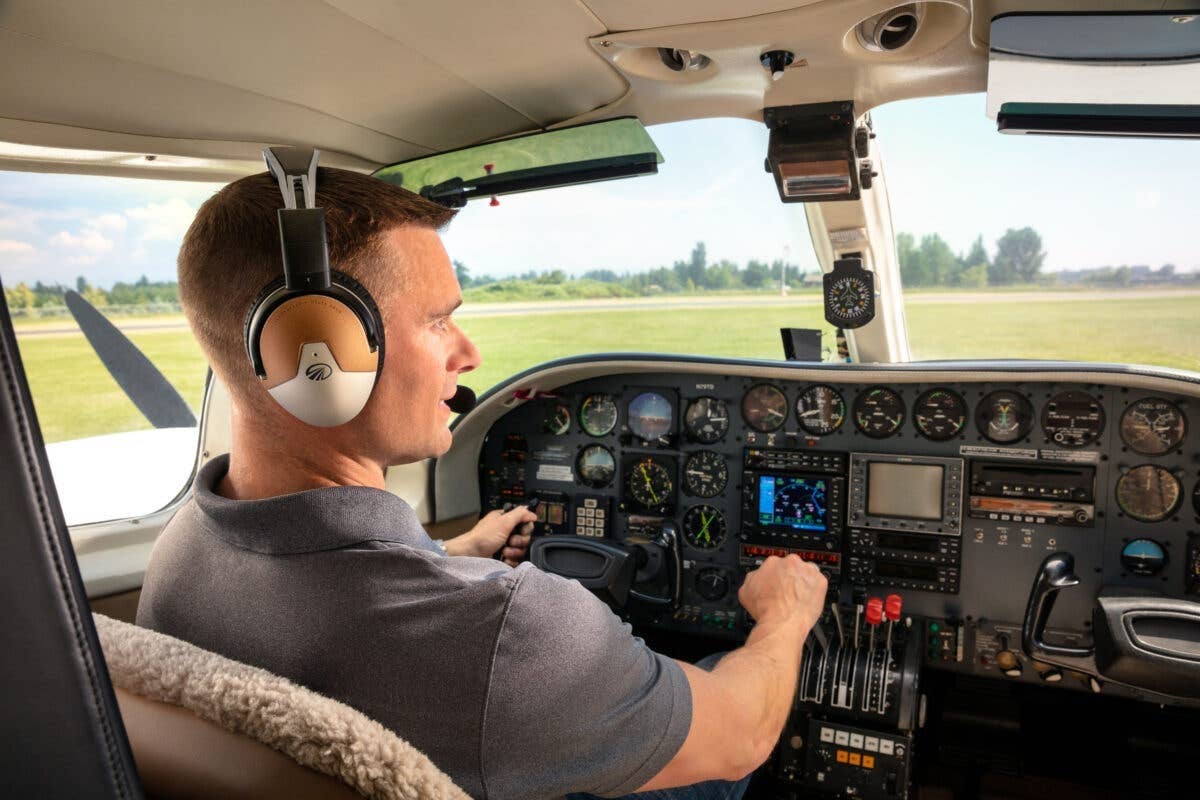When To Cry Uncle
There’s a time to bluff, a time to run and a time to ask for help
I was three hours out of Reykjavik, Iceland, on my way to Wick, Scotland, when I sensed, rather than heard, the engine begin to spool down. Not a good place to lose power. Somewhere below, in fact, everywhere below, the cold, angry North Atlantic rolled on toward the pole, 30-knot winds blowing the crests off 20-foot breakers.
The new Maule M6-260 I was flying was fitted with amphibious floats, but they'd be more a liability than an asset if I needed to ditch in the ocean. I was level at 9,000 feet, immersed in freezing glop, and I had been running with carb heat half on for most of the leg. Nothing unusual about that. The ocean between Iceland and Scotland is where the ice gods hold their parties.
The next-to-last leg of my 4,000 nm delivery flight from Moultrie, Georgia, to Glasgow, U.K., was about 700 nm down to Wick, Scotland, and the weather was poor, as always. The problem was/is, if you're determined to wait for good weather on that leg, you may as well buy a house in Reykjavik. Accordingly, I filed IFR the next morning, climbed up to 9,000 feet for the crossing and hoped for the best.
Inflight icing is practically a given on that leg, frequently at all levels from 2,000 to 15,000 feet; it was waiting for me at 9,000. I had been watching the ice ebb and flow inside the glop, and I was apparently too distracted to notice the slight loss of power.
I had been running with carb heat partially on to help sidestep the possibility of carburetor ice. I pulled on full carb heat and, sure enough, there was no reaction from the engine. I had a problem.
I tried richening and leaning the mixture, changing the power setting, switching tanks, but nothing seemed to help. I had just finished making a position report, so I pushed the button again. "Scottish Control, this is November 3274B again, I seem to be losing power. I'd like to try a lower altitude."
"Roger 74B, you're cleared down to the altitude of your choice. You have no other traffic. Do you wish to declare an emergency?" came the reply.
"Negative, not at this time, Scottish. We'll drop down to 5,000 and keep you advised," I replied.
Ten minutes later, the situation was worse. I had dropped out the bottom of the clouds, but the engine was still down on power, and full carburetor heat didn't seem to be making a dent. I was 300 nm from the nearest land, Stornoway, Scotland. "Scottish, 74Bravo needs to go ahead and declare an emergency, and we'd like to change our destination to Stornoway."
Scottish had already alerted a British military Lockheed JetStar flying roughly the same route at 35,000 feet, and the four-engine JetStar formed up on my little Maule a few minutes later for the escort toward Stornoway, circling me 500 feet lower. The jet pilot advised that a rescue helicopter with a swimmer aboard was headed my way and would take over for the last 100 miles.
Sure enough, an hour later, the helicopter showed up directly under my nose and turned to fall into position at my 9 o'clock. The JetStar pilot wished me good luck and rocketed away through the overcast.
The sky was definitely falling as we approached land, and when the Scottish coast finally appeared ahead, we were down to 1,500 feet and barely staying under the clouds.
Finally, with Stornoway in sight, the SAR helicopter broke off and returned to its base. I continued on to the airport and landed without incident.
As it turned out, the mechanic couldn't find any problem with the engine. He reasoned that it had to be some kind of weird manifestation of carburetor ice and, perhaps to make me feel better, commented that he had seen this kind of icing before.
More to the point, no one called me an idiot. The U.K. aviation officials asked me to fill out a simple form explaining the chain of events. Perhaps most important, I never received a bill for SAR services. In other words, there were no consequences to my declaring an emergency.
Those are perhaps the main concerns of pilots who get into trouble in the sky. The near-universal sentiment is that they'll be held up to ridicule for doing something stupid, their license will be suspended/revoked and a giant meteor will strike the Earth.
The reality is that, even in the case of an accident, there's usually no government or financial consequence unless you've done something incredibly stupid or incredibly illegal---usually. Emergencies are often in the eye of the beholder, but even if the respective authorities feel you overreacted and there was no real emergency, there's most often no penalty.
Perhaps the more pressing question is, what happens in the event of an accident?
I've lost only one airplane in 50 years of flying---a fully reconditioned Piper Lance in 1998 that suffered a total engine failure when a connecting rod broke over the Ogaden Desert of Ethiopia, Africa. We were on the last leg of a 13-day, 9,000-mile delivery from Santa Monica, Calif., to Nairobi, Kenya. I got off a quick Mayday, broadcasting in the blind, knowing there was almost no chance of anyone hearing it so far from civilization.
no penalty.
As it turned out, the captain of a Gulf Air flight did hear it and copied my position. He tried to respond, but I never heard his call.
The Piper Lance was totaled in the rocky desert landing, but the owner---a new private pilot occupying the right seat---didn't blame me, and neither did anyone else. We spent four days in the African desert before being rescued and evacuated to Addis Ababa.
The inevitable board of inquiry asked me to summarize the accident, and I said, "The engine quit, and I landed." I did have to elaborate a little more, but I'm happy to report there were no repercussions from that experience, either.
Of course, emergencies aren't confined to engine failures. Some pilots become lost, others get trapped on top of an overcast, still others have landing gear that fail to extend properly and a few aviators fail to tighten the oil filler cap. There are probably 50 or 100 different varieties of emergencies, and inventive pilots find new ones all the time.
In this age of GPS navigation, it might seem as if there's little cause for anyone to become lost, but it's important to remember that not every airplane is equipped with satellite navigation, or needs to be. Many NORDO airplanes without electrical systems---Cubs, Taylorcrafts, Luscombes, Porterfields and the like---make all of their flights in good VFR conditions, flying by dead reckoning or pilotage (or both) and have no need for navigation radios, VHF, GPS or any other kind.
Unfortunately, pilots of fully equipped aircraft also can become disoriented and need help. Too often, these folks wait too late to ask for help, and the result can be running out of fuel and a forced landing.
The point is to ask for help early. Here in Southern California, we're lucky to have plenty of mountains, lakes, highways and other checkpoints to prevent becoming "temporarily disoriented," but in case you do, cry wolf.
Landing-gear problems on retractables are another common emergency. Back in the early 1990s, I was flying copilot on a Swearingen SJ30 business jet from San Antonio, Texas, to the Paris Air Show when we had a total hydraulic failure while trying to make a fuel stop in Memphis, Tenn. Both hydraulic systems went to zero, and we knew we were in trouble.
This was the number-one prototype of the SJ30 and it was still teething, so we had our doubts if the emergency pneumatic blow-down system would work. It was a one-shot system that had to work. Sure enough, when we fired the bottle, we didn't get a green light on the right main gear.
We flew circles over Memphis for another half hour until fuel became critical, then entered the pattern for our emergency landing. The fire/rescue equipment was waiting for us as we cleared the airport fence and settled toward the runway.
Pilot Carl Pascarell eased the airplane into the flare, and I made one last check of the hydraulic pressure gauges for both systems. One was showing a very small amount of pressure, and I punched on the pump as we were settling toward the runway.
Suddenly, we had three green---a good thing since we touched down about a second later. The airplane rolled out down the centerline, and we turned off at the end of the runway, airplane undamaged. Then, we cleaned up the seats and went to the motel.
Trapped on top is another situation that demands an early cry for help. Instrument failures can also necessitate a request for assistance.
Four years ago, I was bringing a Cessna 340 back from the East Coast to Los Angeles and lost my HSI during an approach to Long Beach in extremely turbulent, IFR conditions. The L.A. Basin was enduring heavy rain and low IFR conditions, and I found myself in the middle of it without any form of heading information.
The wet compass was useless in the turbulence, and I was having a difficult time holding altitude and fighting to maintain the proper heading without a directional gyro. I finally asked Coast Approach if they could assist me with a no-gyro approach. This is similar to a military ground-controlled approach (GCA), except the controller issues only start turn/stop turn commands and lets you worry about altitude.
Fortunately, Coast had a former air force controller who directed me toward the ILS, got me on the localizer and turned me loose. I was able to zigzag my way down the glideslope and broke out right at minimums.
I knew I'd had some huge altitude deviations, and I was positive I'd be in for a violation, but no one said a word when I got on the ground and taxied in. Later, calmed down and home, I called Center on the landline, and they told me they'd had to assist about a dozen other pilots who had everything working and still couldn't track the glideslope because of the severe turbulence. The controller commented that I had actually done pretty well without a working DG.
I've been fortunate to walk away from a dozen or more emergencies, not because of any great skill, but mostly a combination of luck and circumstance.
And most of the time, I had a little help from my friends on the ground.

Subscribe to Our Newsletter
Get the latest Plane & Pilot Magazine stories delivered directly to your inbox

